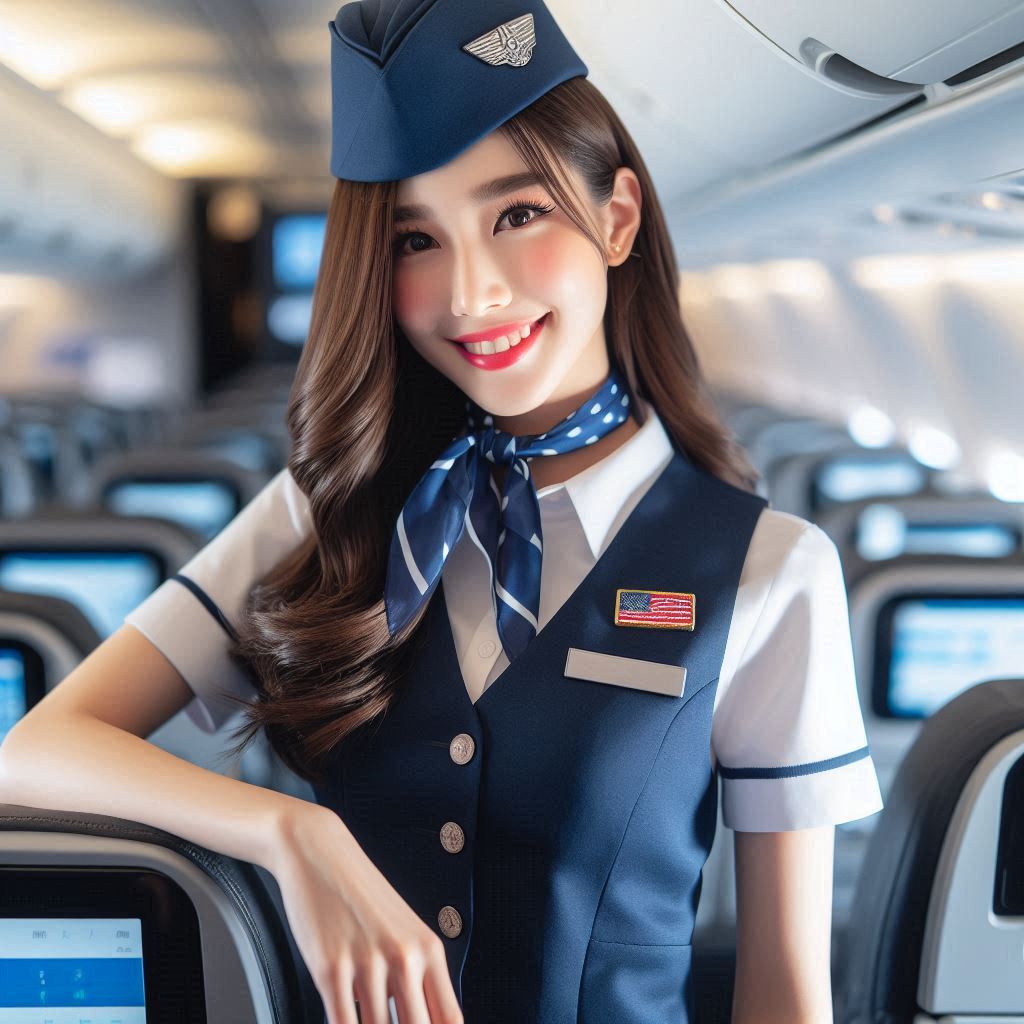Introduction
Starting a career as a flight attendant can be exciting yet challenging.
New flight attendants face various responsibilities that require preparation and professionalism.
Understanding the expectations of this role is crucial for success.
Being well-prepared helps flight attendants handle diverse situations and deliver excellent customer service.
Professionalism is essential in creating a positive atmosphere for passengers.
It sets the tone for the entire flight experience.
In this blog post, we will explore essential tips for new flight attendants starting out.
First, we will discuss the importance of understanding your role and responsibilities.
Next, we will address the significance of adhering to dress codes and grooming standards.
Then, we will cover customer service skills that enhance passenger satisfaction.
We will also emphasize safety and emergency procedures crucial for passenger well-being.
Additionally, we will share time management strategies that promote efficiency during flights.
Finally, we will highlight the importance of teamwork and self-care for maintaining balance in this demanding role.
By following these tips, new flight attendants can navigate their careers effectively and confidently.
Prepare yourself for a rewarding journey in the airline industry!
Understanding the Role
Duties and Responsibilities of a Flight Attendant
As a new flight attendant, you must understand your role.
Your primary duty is to ensure passenger safety and comfort.
You conduct safety demonstrations before takeoff and ensure all safety equipment functions properly.
During flights, you serve food and beverages to passengers.
You also respond promptly to passenger requests and inquiries.
In addition, you assist passengers with special needs, including elderly or disabled travelers.
Managing conflicts is another essential part of your job.
You need to monitor the cabin for signs of trouble, including unruly behavior or medical emergencies.
Maintaining a vigilant and proactive approach ensures a safe environment for everyone on board.
You will work closely with pilots and other crew members.
Effective communication with the flight deck is crucial.
This ensures you address any in-flight issues that may arise.
You also help prepare the cabin for landing and takeoff.
Being aware of your responsibilities keeps operations running smoothly.
Importance of Customer Service and Safety
Customer service plays a vital role in being a successful flight attendant.
You will interact with passengers from diverse backgrounds and cultures.
Providing a warm, friendly experience can make a significant difference in their journey.
You should be prepared to handle complaints gracefully and find solutions quickly.
A positive attitude enhances passenger satisfaction and encourages repeat business.
Safety is your top priority as a flight attendant.
Familiarize yourself with all emergency protocols and procedures.
Regular training sessions reinforce your knowledge and skills.
You must demonstrate calmness under pressure during emergencies.
This ability can save lives and create a reassuring atmosphere for passengers.
Need for Excellent Communication Skills and Problem-Solving Abilities
Excellent communication skills are critical for flight attendants.
You must convey information clearly and effectively to passengers.
Use a friendly tone when making announcements or interacting with travelers.
You should listen actively to understand passenger needs and concerns.
Effective communication prevents misunderstandings and resolves conflicts more efficiently.
Problem-solving abilities are equally important in this role.
You will encounter various challenges during flights, from schedule changes to passenger disputes.
Being resourceful and quick-thinking will help you navigate these situations.
A flexible mindset allows you to adapt to unexpected circumstances.
Understanding the role of a flight attendant is crucial for success.
Recognize the importance of customer service and safety in your daily tasks.
Focus on developing excellent communication skills and strong problem-solving abilities.
By mastering these aspects, you will create a positive experience for passengers and enhance your career as a flight attendant.
Dress Code and Grooming
Tips on Adhering to the Airline’s Dress Code and Grooming Standards
Adhering to the airline’s dress code is essential for flight attendants.
Each airline has specific grooming standards that you must follow.
Start by reviewing the airline’s guidelines thoroughly.
These standards usually include uniform specifications, shoe requirements, and accessory restrictions.
Make sure you understand these requirements to maintain compliance.
Wear your uniform correctly at all times.
Ensure it fits well and is clean and pressed.
Properly fitting uniforms present a polished and professional appearance.
If you have questions about your uniform, ask your supervisor for clarification.
Pay attention to your footwear.
Choose shoes that are comfortable, closed-toe, and appropriate for the uniform.
Ensure your shoes are clean and in good condition.
Flight attendants often spend long hours on their feet.
Comfortable shoes help you perform your duties effectively.
Importance of Maintaining a Professional Appearance While on Duty
Maintaining a professional appearance is crucial while on duty.
Your appearance reflects the airline’s brand and values.
A well-groomed flight attendant instills confidence in passengers.
It demonstrates your commitment to professionalism and customer service.
Passengers expect a certain standard of appearance from flight attendants.
They associate your grooming and attire with the airline’s quality.
Therefore, presenting a professional image is vital for customer satisfaction.
A polished appearance enhances the overall travel experience for passengers.
Advice on Choosing Appropriate Attire and Grooming Practices
When choosing attire, prioritize comfort and professionalism.
Select breathable fabrics that allow you to move freely.
Consider the climate and destination when selecting layers or accessories.
Keep accessories minimal and professional.
Avoid overly flashy jewelry or large bags.
Stick to simple and elegant pieces that complement your uniform.
Remember that less is often more in a professional setting.
Grooming practices also play a significant role in your overall appearance.
Keep your hair neatly styled and groomed at all times.
If your airline has specific hair color guidelines, follow them closely.
Use appropriate hair products to maintain a tidy look.
Pay attention to your makeup as well.
Opt for natural-looking makeup that enhances your features without being overpowering.
Some airlines may have specific guidelines regarding makeup, so be sure to adhere to those.
Nail care is also important.
Keep your nails clean and trimmed.
If allowed, choose subtle nail polish colors that align with your airline’s standards.
Avoid long or elaborate nail designs that could detract from your professional image.
Adhering to the airline’s dress code and grooming standards is essential for flight attendants.
A professional appearance reflects the airline’s commitment to quality service.
By following these tips, you will present a polished image and enhance the travel experience for passengers.
Read: How to Create a Pet-Friendly Grooming Environment
Customer Service Skills
Significance of Providing Exceptional Customer Service to Passengers
Providing exceptional customer service is crucial for flight attendants.
Your interactions with passengers significantly impact their travel experience.
Satisfied passengers are more likely to return to the airline.
They also often recommend the airline to others.
Great customer service enhances the airline’s reputation and brand loyalty.
Recognizing the importance of every passenger is essential.
Each traveler comes with unique needs and expectations.
Meeting those expectations can lead to positive experiences.
A friendly smile and a warm greeting can set the tone for the flight.
Your demeanor directly influences passengers’ comfort and satisfaction.
Tips on How to Handle Difficult Passengers and Challenging Situations
Handling difficult passengers requires specific skills.
Start by remaining calm and composed, even in tense situations.
Take a deep breath before responding to any aggressive or rude comments.
Use a polite tone and maintain a respectful attitude.
Your professionalism can diffuse conflicts and create a more positive atmosphere.
Listen actively to the passenger’s concerns.
Make sure they feel heard and understood.
Often, passengers simply want someone to acknowledge their frustration.
Repeat back their concerns to show you are paying attention.
This technique helps validate their feelings and demonstrates empathy.
When faced with challenging situations, prioritize finding solutions.
Offer practical options to resolve the issue.
For example, if a passenger is upset about seating, suggest alternative solutions.
Being proactive can often turn a negative situation into a positive one.
Set clear boundaries when necessary.
If a passenger becomes overly aggressive or disrespectful, assertively explain acceptable behavior.
Remember, your safety and the safety of other passengers come first.
Encourage New Flight Attendants to Remain Calm, Patient, and Courteous
As a new flight attendant, developing strong customer service skills is vital.
Always remember to remain calm and patient, regardless of the circumstances.
Difficult situations can arise unexpectedly, but your response matters.
Staying composed allows you to think clearly and act effectively.
Practice courtesy in every interaction.
Use phrases like “please” and “thank you” to show appreciation.
Polite language helps build rapport with passengers.
A simple “How can I assist you?” can make a world of difference.
Maintain a positive attitude, even when faced with challenges.
A friendly demeanor can transform a passenger’s experience.
Show enthusiasm for your role and the service you provide.
This positivity will likely reflect in your interactions.
Continuous self-improvement is essential in customer service.
Seek feedback from colleagues and supervisors to enhance your skills.
Participate in training sessions to refine your techniques.
Remember that excellent customer service is a continuous journey, not a destination.
Exceptional customer service is vital for flight attendants.
Handling difficult passengers with calmness and patience fosters positive experiences.
By practicing strong customer service skills, you will contribute to passenger satisfaction and loyalty.
Read: Nail Technician Networking: Building Industry Connections
Safety and Emergency Procedures
Importance of Knowing and Understanding Safety and Emergency Procedures
Understanding safety and emergency procedures is crucial for flight attendants.
You are responsible for the safety of all passengers onboard.
Comprehensive knowledge of these procedures ensures you can respond effectively in emergencies.
Familiarity with safety protocols helps prevent accidents and mitigates risks.
Each flight attendant must know the location of emergency equipment.
This includes fire extinguishers, oxygen masks, and first aid kits.
Knowing how to operate this equipment can save lives.
Regular training sessions help reinforce this knowledge and build confidence.
Your ability to recall these procedures under pressure is vital.
Guidance on Effectively Communicating Safety Information to Passengers
Effectively communicating safety information to passengers is essential.
Start by delivering a clear and concise safety briefing before takeoff.
Use simple language that all passengers can easily understand.
Your tone should be calm yet authoritative to instill confidence.
Incorporate visual aids when possible, such as safety cards.
Encourage passengers to review these cards and familiarize themselves with safety features.
Use demonstrations to illustrate the use of seatbelts and oxygen masks.
Engaging passengers during this briefing increases retention of important safety information.
Maintain eye contact with your audience during the briefing.
This fosters connection and keeps passengers attentive.
Be approachable and willing to answer any questions about safety protocols.
Reassuring passengers shows your commitment to their safety.
Need for Quick Thinking and Action in Emergency Situations
In emergency situations, quick thinking and decisive action are critical.
You must remain calm to lead passengers through stressful scenarios.
Your ability to think clearly helps guide passengers safely during emergencies.
Trust your training and instincts when responding to emergencies.
Assess the situation quickly and determine the best course of action.
For example, during turbulence, instruct passengers to fasten their seatbelts immediately.
In a medical emergency, prioritize the passenger’s needs while assessing the situation.
You may need to delegate tasks to other crew members during emergencies.
Clear communication ensures that everyone understands their roles.
This coordination can significantly improve response times and effectiveness.
Prepare for various emergency scenarios, including evacuations and medical incidents.
Familiarize yourself with evacuation routes and procedures for each aircraft type.
Understanding these protocols allows for efficient responses in high-pressure situations.
Maintain a mindset of continuous improvement regarding safety and emergency procedures.
Regularly review and practice these protocols, as they can change.
Stay updated on new safety regulations and training requirements from your airline.
Understanding safety and emergency procedures is vital for flight attendants.
Effectively communicating safety information prepares passengers for emergencies.
Quick thinking and decisive action can save lives during critical situations.
Your dedication to safety ensures a secure and pleasant flying experience for all.
Read: The Role of Technology in Modern Pet Grooming

Time Management
Managing Time Effectively During Flights
Effective time management is crucial for flight attendants.
You need to juggle multiple tasks while ensuring passenger comfort and safety.
Start by prioritizing your responsibilities based on urgency and importance.
Make a checklist of essential tasks before each flight.
This will help you stay organized and focused.
During the flight, monitor the cabin’s status regularly.
Check on passengers’ needs and address them promptly.
Use downtime wisely, such as during meal service, to complete necessary tasks.
Stay aware of your time limits for each task.
This helps you maintain efficiency throughout the flight.
Importance of Being Punctual and Organized
Punctuality is essential in the aviation industry.
Arriving on time for pre-flight briefings and boarding ensures a smooth operation.
Late arrivals can disrupt schedules and impact the overall flight experience.
Organization plays a key role in time management.
Keep your workspace tidy and well-organized.
This allows you to quickly locate items during service.
Ensure your equipment is in good working order before the flight.
Regularly check and restock supplies to avoid delays.
Communicate with your team about any potential delays.
Transparency helps everyone stay informed and work together effectively.
Strategies for Balancing Various Tasks and Responsibilities
Balancing multiple tasks while in the air can be challenging.
Develop a routine to help manage your workload efficiently.
For example, establish a schedule for regular cabin checks and service deliveries.
This routine allows you to anticipate needs and stay proactive.
Use technology to your advantage.
Many airlines provide apps that help track tasks and schedules.
These tools can remind you of key responsibilities during flights.
When serving passengers, prioritize based on their immediate needs.
Address requests from passengers who require assistance first.
This demonstrates your commitment to their comfort and safety.
Practice self-care to maintain energy levels during long flights.
Stay hydrated and take short breaks when possible.
This will help you remain alert and focused on your tasks.
Lastly, seek feedback from experienced colleagues.
They can share valuable insights on managing time effectively.
Learn from their experiences to improve your time management skills.
Effective time management is vital for flight attendants.
Prioritize tasks, be punctual, and maintain organization to enhance efficiency.
Balancing various responsibilities requires routine and effective communication.
With practice, you will excel at managing your time and providing excellent service.
Read: Customer Service Tips for Pet Grooming Professionals
Transform Your Career Today
Unlock a personalized career strategy that drives real results. Get tailored advice and a roadmap designed just for you.
Start NowTeamwork and Collaboration
Importance of Working Well with Other Flight Attendants and Crew Members
Teamwork is crucial for flight attendants.
You must collaborate with other crew members to ensure smooth operations.
Each member of the team plays a vital role in providing excellent service.
When you work well together, you create a positive atmosphere for passengers and colleagues.
Flight attendants often face high-pressure situations.
Effective teamwork helps manage these challenges efficiently.
Supporting each other enhances problem-solving and improves response times.
A united team can better handle emergencies and difficult passengers.
Tips on How to Communicate and Collaborate Effectively
Strong communication is the backbone of teamwork.
Always keep lines of communication open with your colleagues.
Use clear and concise language during briefings and in-flight announcements.
This clarity minimizes misunderstandings and ensures everyone is on the same page.
Practice active listening.
Pay attention to your team members’ concerns and suggestions.
Show respect for their opinions, even if you disagree.
This fosters an inclusive environment that encourages collaboration.
Utilize non-verbal communication effectively.
Maintain eye contact and use gestures to convey messages, especially during busy moments.
These signals help maintain connection and understanding among team members.
Develop a team strategy for each flight.
Discuss roles and responsibilities during pre-flight briefings.
This approach creates a clear structure, allowing everyone to know their tasks.
Encourage feedback among team members.
Regularly discuss what worked well and what can be improved.
Constructive criticism leads to better collaboration and enhances overall performance.
Impact of Teamwork on Overall Passenger Experience
Effective teamwork significantly impacts passenger experiences.
When crew members collaborate seamlessly, passengers receive timely service.
This efficiency improves customer satisfaction and enhances their overall flight experience.
Teamwork also creates a friendly atmosphere on board.
Passengers notice when flight attendants work harmoniously.
A positive environment makes them feel more comfortable and valued.
Moreover, a well-coordinated team can anticipate passenger needs.
For example, if one flight attendant identifies a passenger needing assistance, others can quickly respond.
This proactive approach shows passengers that the crew is attentive and cares about their well-being.
Additionally, strong teamwork improves safety protocols.
In emergencies, a cohesive team can execute procedures more effectively.
This efficiency ensures passenger safety and builds trust in the crew’s capabilities.
Teamwork and collaboration are essential for flight attendants.
You must communicate clearly and actively listen to colleagues.
Effective teamwork enhances passenger experiences, increases satisfaction, and ensures safety.
Strive to be a supportive team member, and together you will achieve success.
Self-Care and Wellness
Physical and Mental Demands of Being a Flight Attendant
Being a flight attendant can be physically and mentally demanding.
Long hours on your feet can lead to fatigue.
You often lift heavy luggage, which strains your body.
Dealing with difficult passengers can also create mental stress.
This job requires constant alertness and quick decision-making.
Flight attendants often experience disrupted sleep patterns.
Irregular schedules can interfere with your body’s natural rhythm.
Lack of rest can affect your performance and well-being.
Additionally, confined spaces on airplanes can contribute to feelings of anxiety.
Thus, it’s essential to recognize these challenges and prioritize self-care.
Prioritizing Self-Care and Maintaining a Healthy Lifestyle
Prioritizing self-care is crucial for your overall wellness.
Start by maintaining a balanced diet.
Choose nutritious foods that provide energy and sustenance during flights.
Avoid excessive caffeine and sugary snacks, which can lead to crashes in energy.
Stay hydrated by drinking plenty of water throughout the day.
Airplane cabins have low humidity levels, which can lead to dehydration.
Carry a reusable water bottle to ensure you drink enough fluids.
Regular exercise is vital for flight attendants.
Incorporate physical activity into your routine to combat fatigue and stress.
Simple exercises, like stretching or walking, can improve circulation and energy levels.
Aim for at least 30 minutes of exercise most days.
Consider mindfulness practices to maintain mental well-being.
Techniques like meditation or deep breathing can reduce stress.
Take short breaks during flights to practice these methods.
Even a few minutes of mindfulness can significantly enhance your focus and calmness.
Managing Stress and Fatigue While Working in the Airline Industry
Managing stress effectively is essential for flight attendants.
Recognize your stress triggers and find healthy coping mechanisms.
Journaling can help you process feelings and reflect on experiences.
Connect with colleagues to share your challenges and successes.
Building supportive relationships with your team can provide emotional relief.
Discussing experiences can foster camaraderie and reduce feelings of isolation.
Establish a consistent sleep schedule when possible.
Prioritize rest on layovers to recharge your body and mind.
Create a sleep-friendly environment by minimizing noise and light.
Using eye masks and earplugs can improve sleep quality.
Be proactive in seeking professional help if needed.
Don’t hesitate to reach out to mental health professionals.
They can provide guidance and support tailored to your needs.
Self-care and wellness are vital for flight attendants.
Acknowledge the physical and mental demands of your role.
Prioritize nutrition, hydration, and exercise to maintain a healthy lifestyle.
Manage stress through mindfulness and supportive relationships.
By prioritizing self-care, you enhance your performance and overall well-being.
Conclusion
Several key tips can help new flight attendants succeed.
Understanding your role and responsibilities is crucial.
Emphasizing customer service and safety will enhance passenger experiences.
Following the dress code and grooming standards helps maintain a professional appearance.
Exceptional customer service skills are essential in this profession.
Handle difficult passengers with patience and empathy.
Always prioritize safety and understand emergency procedures.
Effective communication of safety information is vital.
Time management plays a significant role in ensuring efficiency during flights.
Stay punctual and organized while balancing various responsibilities.
Collaborating well with team members improves overall performance and passenger satisfaction.
Prioritize self-care and wellness to combat the physical and mental demands of this job.
Maintain a healthy lifestyle and manage stress effectively.
I encourage all new flight attendants to apply these tips to succeed in your role.
Each aspect, from communication to self-care, contributes to your effectiveness.
Embrace challenges and view them as opportunities for growth.
Remember, you are part of an essential profession that ensures safe air travel.
Your hard work and dedication make a significant impact on passengers’ experiences.
Best of luck as you embark on this rewarding journey!
[E-Books for Sale]
The Big Book of 500 High-Paying Jobs in America: Unlock Your Earning Potential
$19.99 • 500 High-Paying Jobs • 330 pages
Explore 500 high-paying jobs in America and learn how to boost your career, earn more, and achieve success!
See All 500 High-Paying Jobs of this E-Book
1001 Professions Without a Degree: High-Paying American Jobs You Can Start Now
$19.99 • 1001 Professions Without a Degree • 174 pages
Discover 1001 high-paying jobs without a degree! Unlock career tips, skills, and success strategies for just $19.99!




